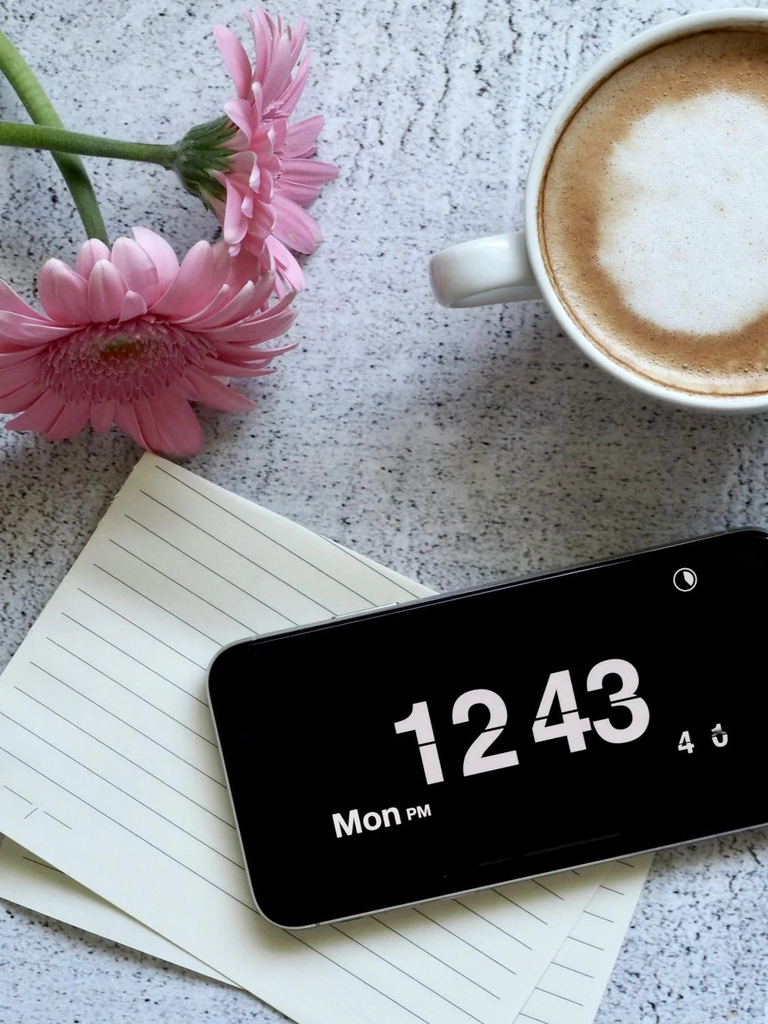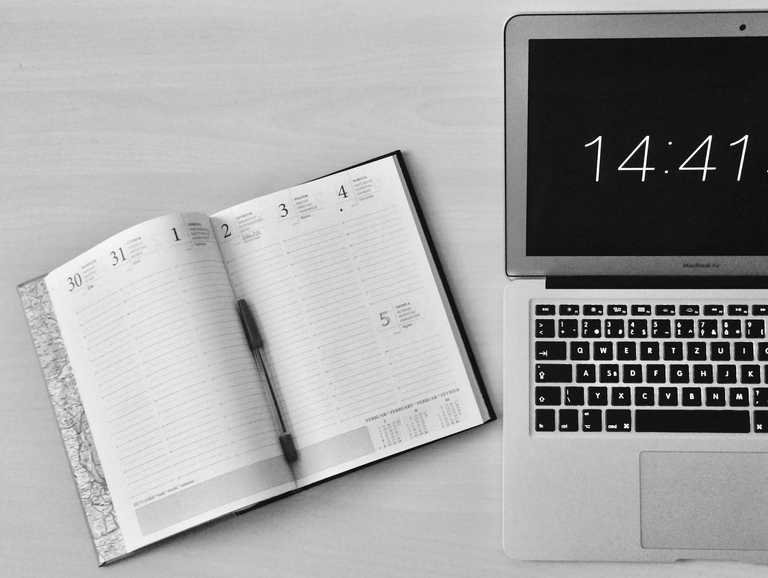Reflexiones sobre el tiempo: ¿Realmente estamos aprovechando cada momento?
Time is a resource that, despite being universal, is also somewhat personal. We all have the same amount of hours in the day, but each person decides what to do with their time; each person decides how to spend the hours they have available. Some people seek to make the most of every second they have and do something that fulfills them, while others, on the contrary, feel they are wasting time and not spending it on something that feels right. "Time flies," some say; time passes and doesn’t stop for anyone, we all surrender to Father Kronos.
We often hear people say "time is gold," a metaphor or comparison that doesn’t do justice to what time really is, because while it is true that gold is a valuable resource, it can be exchanged for other types of resources. Not so with our time. No one can say: "I’ll exchange a day for a certain amount of gold or another resource," no one. Every minute that passes is something we will never experience again, there won’t be another identical day; each day is unique and unrepeatable. This forces us to live in the present, as it is the moment we have; if we cannot relive the past and the future is uncertain, the only thing we have is this moment. Meditating on this can be very overwhelming, as it forces us or creates the sensation that we must be in motion, making the most of our time.
But what does it really mean to make the most of time? There isn’t a single answer to this question, as each person will respond according to their own view of what making the most of time is. However, many associate this question with being productive: making the most of time by producing, being able to do the largest number of tasks in the shortest time, doing bigger tasks, doing more and more. Yet, here we fall into the trap of doing more and producing. We live in a society that values doing much more than being. We are often valued by the number of tasks we can complete in a day, but let me ask again: is this really making the most of time?
Making the most of time shouldn’t be limited to filling our hours with activities and tasks. On the contrary, it should be a conscious choice of how we decide to spend our time; it should rather be about valuing everything we do. Not only when we are performing an activity, but making the most of time should also include moments of rest, moments of reflection, and the time we take to connect with ourselves. Many times, we think that well-spent time is when we are fulfilling some kind of responsibility, but nothing could be further from the truth. Well-spent time is when we consciously choose to enjoy it, those moments when we choose to be happy, when we find meaning: reading a book, taking a nap, talking with friends, or simply having moments of introspection.
In our fast-paced society, there is a certain guilt associated with not being busy, but the real waste of time happens when we overload ourselves with responsibilities we don’t want to do, tasks that are obligatory and that we don’t enjoy. Wasting time—according to whom? According to others' expectations. I don’t believe it’s worth living according to what others expect of us. Many times, making the most of time is stopping, taking a breath, and giving ourselves a break.
Versión en español
El tiempo es un recurso que, a pesar de ser universal, también es un tanto personal. Todos tenemos la misma cantidad de horas en el día, pero cada quien decide qué hacer con su tiempo; cada persona decide en qué ocupar las horas que tiene disponibles. Algunas personas buscan aprovechar cada segundo que tienen disponible y hacer algo que las llene, mientras que otras, por el contrario, sienten que desaprovechan el tiempo y que no lo ocupan en algo que les haga bien. "El tiempo vuela", dicen algunos; el tiempo pasa y no se detiene para nadie, todos caemos rendidos ante el padre Kronos.
A menudo solemos escuchar decir que "el tiempo es oro", una metáfora o comparación que no le hace justicia a lo que es verdaderamente el tiempo, pues si bien es cierto que el oro es un recurso muy valioso, puede ser intercambiado por otro tipo de recurso, pero no así con nuestro tiempo. Nadie puede decir: "Voy a intercambiar un día por cierta cantidad de oro u otro recurso", nadie. Cada minuto que pasa es algo que no volveremos a experimentar, no habrá otro día igual; cada día es único e irrepetible. Esto nos obliga a vivir en el presente, pues es el momento que tenemos; si no es posible volver a vivir el pasado y el futuro es incierto, lo único que tenemos es este momento. Meditar en esto puede ser muy abrumador, ya que nos obliga o nos crea la sensación de que debemos estar en movimiento, aprovechando al máximo nuestro tiempo.
Pero, ¿qué significa realmente aprovechar el tiempo? No hay una única respuesta para esta pregunta, pues cada quien responderá según su opinión de lo que sea aprovechar el tiempo. Sin embargo, muchos asocian esta pregunta con ser productivos: aprovechar el tiempo produciendo, ser capaces de hacer el mayor número de tareas en el menor tiempo, realizar tareas más grandes, hacer más y más. No obstante, acá caemos en la trampa de hacer más y producir. Vivimos en una sociedad que valora mucho más el hacer que el ser. Se nos suele valorar por la cantidad de tareas que podemos hacer en el día, pero permítame volver a preguntar: ¿Esto es realmente aprovechar el tiempo?
Aprovechar el tiempo no debería limitarse a llenar nuestras horas con actividades y tareas. Al contrario, debería ser una toma consciente de en qué elegimos ocupar nuestro tiempo; sería más bien valorar todo aquello que hacemos. No solo si estamos realizando alguna actividad, sino también aprovechar el tiempo debería incluir los momentos de descanso, los momentos de reflexión y el tiempo que ocupamos para conectar con nosotros mismos. Muchas veces pensamos que el tiempo bien ocupado es aquel en el que estamos con algún tipo de responsabilidad, pero nada más alejado de la realidad. El tiempo bien ocupado es aquel en el que elegimos conscientemente disfrutarlo, aquel momento en que elegimos ser felices, en el que encontramos sentido: leer un libro, tomar una siesta, conversar con nuestros amigos o simplemente tener momentos de introspección.
En nuestra sociedad tan acelerada, hay una cierta culpa asociada con no estar ocupados, pero el verdadero desperdicio del tiempo ocurre cuando nos sobrecargamos de responsabilidades que no queremos hacer, tareas que son obligadas y que no disfrutamos. ¿Desperdiciar el tiempo según quién? Según las expectativas de los otros. No creo que valga la pena vivir según que los demás esperan de nosotros. Muchas veces, aprovechar el tiempo es detenerse, tomar un respiro y darnos un descanso.




Estoy muy de acuerdo contigo, aprovechar el tiempo se puede definir de varias maneras, desde el estudio o trabajo, hasta una tarde sin hacer nada y bebiendo café, en retrospectiva cada persona le da un valor a su tiempo, dependiendo de sus necesidades y deseos. Saludos que buen post
Muchas gracias por su comentario,pasé un excelente dia